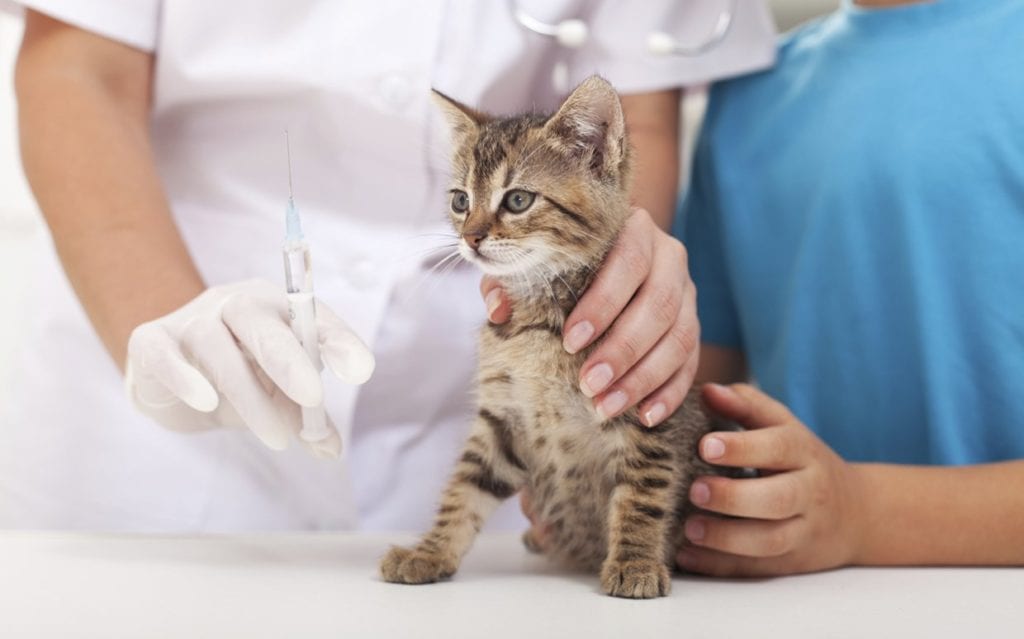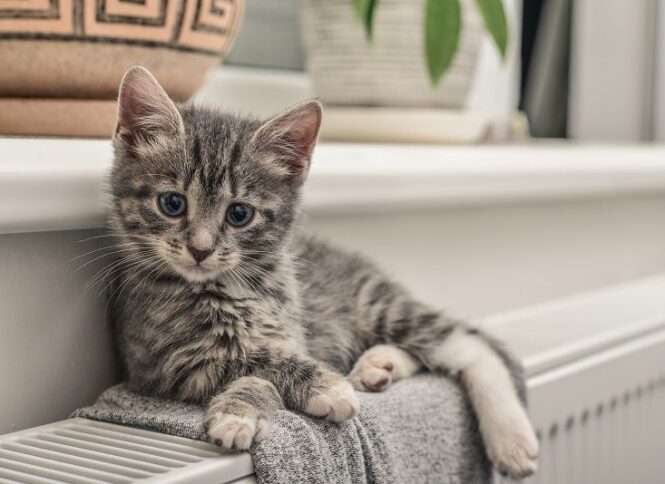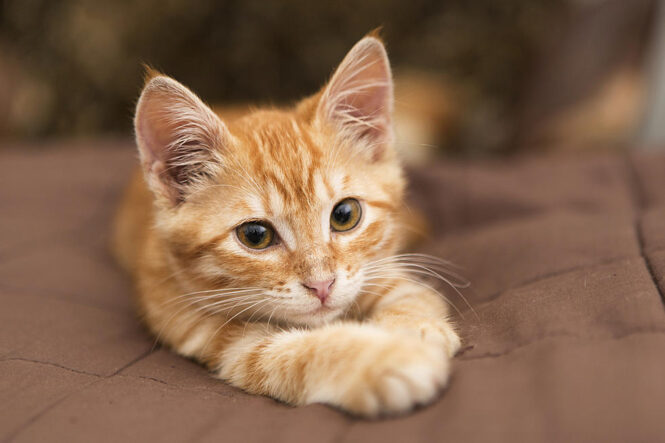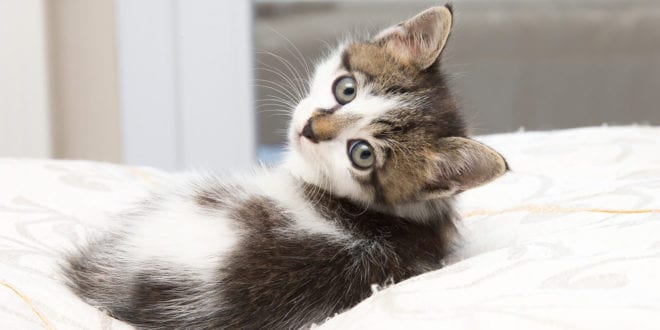If your kittens are between three and six months old, then they should have received their second vaccination, which is due at three months, the first being given at nine weeks so usually around the time they leave the mother and go to a new home.
Which diseases do the vaccinations protect against?
Cats are usually inoculated against:-
- Feline infectious enteritis
- Cat flu (feline herpes virus and feline calicivirus)
- Feline leukemia also a virus
Once the kitten has had their second vaccination at age three months, injections are given annually. If you don’t vaccinate your kitten, you are putting it at risk of contracting any of these diseases. Most vets will not hospitalize cats for health conditions or injuries without full vaccination cover. If you want to go on holiday and use the services of a local cattery, then your cat will need to be up to date on their vaccinations.
Are cat vaccinations expensive?

They can be, but some vets will offer a total package for your new kitten, including both vaccinations, a health check, and some flea treatment products. Some surgeries run a healthy pet club scheme, which you can join your kitten to at their first appointment. These work mostly via the payment of a monthly sum. That covers all routine issues throughout the year, such as the annual vaccination booster and products to treat worms and fleas. They also sometimes offer a discount on some commonly used medications and any surgical procedures. These are always worth checking out.
Some animal charities such as the RSPCA can offer help with the costs of vaccination if you meet their eligibility criteria.
Is vaccination painful?
A quick jab administers the vaccine in the scruff of the neck. That is the loose skin at the back of the head, by which the mother cat usually carries its kittens. It is over in a second, and most animals don’t react to it.
Does pet insurance cover the cost of vaccinations?
Pet insurance is usually only there for accidents or severe health conditions. As such, vaccinations fall within the category of routine maintenance and so would not typically be covered by animal insurance.
An adoption center will commonly re-home their kittens already vaccinated but will charge an adoption fee to reflect the cost of this.
House cats or indoor cats

Some people keep cats that never go outside. If your kitten is destined to be a house cat and will never go out, then you will only require one vaccination, and that is against cat flu and feline enteritis.
Read a handy guide on what to take care of when it comes to your kitty on the ZooAwesome.com.
When can you give your cat the first vaccine?
You must be clear that you will not be able to vaccinate your cat until they spend their first two months of life. During these first four weeks, the kitten will be breastfed by his mother, which will serve him to receive the energies and defenses he will need throughout these early days of life.
It is as if there were a transfer of food and energy resources by his mother. However, the guarantees against these diseases begin to fail towards the seventh week of breastfeeding. Therefore, weaning, which occurs when the kitten turns two months, marks the ideal time to think about administering the first vaccines for cats.
Write down the vaccination schedule for kittens

The second thing you should keep is that, for vaccines to take effect, you have to carefully follow the administration agendas that veterinarians recommend, especially when cats have not been in the world for a short time. Remember, on the other hand, that there are vaccines that these professionals consider mandatory and others that they see as optional. Among the first, without a doubt, we highlight the one known as a trivalent vaccine for cats.
It is named for the fact that it strengthens the body of kittens. That is against three diseases: feline panleukopenia, rhinotracheitis, and calicivirus. When two months ago, they can give your kitten the trivalent vaccine. And a month later they will have to put a reinforcement. This reinforcement is essential so that the kitten’s defenses can continue to have “memory” against the threats posed by the diseases cited.
On the other hand, if your cat is going to go out on the streets or have contact with other animals of its kind, it is worthwhile for veterinarians to convert the trivalent vaccine into tetravalent, which they get adding to its effects those of preventing feline leukemia. The tetravalent vaccine will require the same reinforcement one month after the trivalent one.
Finally, when the kitten turns four months old, you can vaccinate him against rabies, although we inform you that this vaccination is not mandatory in Spain today. However, you have to consider it if you are going to travel to countries where it can be exposed to those.
Consequences of diseases against which cats are vaccinated

In the following part, we explain to you what inconveniences cause the diseases included in the tetravalent vaccine in cats, which are some of the ones that most affect these cats.
- Feline panleukopenia resembles parvovirus in dogs. It stands out for its high mortality (80% in younger cats and 40% in adults). It is very contagious and the reduction of white blood cells causes them to weaken and become dehydrated, in addition to diarrhea and vomiting.
- Rhinotracheitis is a contagious disease of the respiratory tract.
- Calicivirus has effects similar to those of the flu.
- Feline leukemia is fatal and contagious and involves a weakening of the immune system and the appearance of tumors.
- Rabies is a deadly disease that is spread by bites.
Other diseases against which you can vaccinate your cat
Although veterinarians do not consider vaccination against these diseases mandatory, it may be advisable. If you want to be more confident about your health, vaccinate your cat against diseases such as feline infectious peritonitis. It is deadly and incurable and requires a vaccine nasal. Another fatal disease is feline immunodeficiency, whose effects are similar to those of HIV in people.
The latest news regarding vaccination
The experience offers clues as to how to proceed to administer the vaccines correctly. In this sense, it has been discovered that cats are worth vaccinating by injections in different areas and away from the vital organs of animals since repeating fields can cause dangerous sarcomas and cancers.
In short, you already have the necessary information on vaccines for cats. If in doubt, consult your trusted veterinarian.
 Imagup General Magazine 2024
Imagup General Magazine 2024



